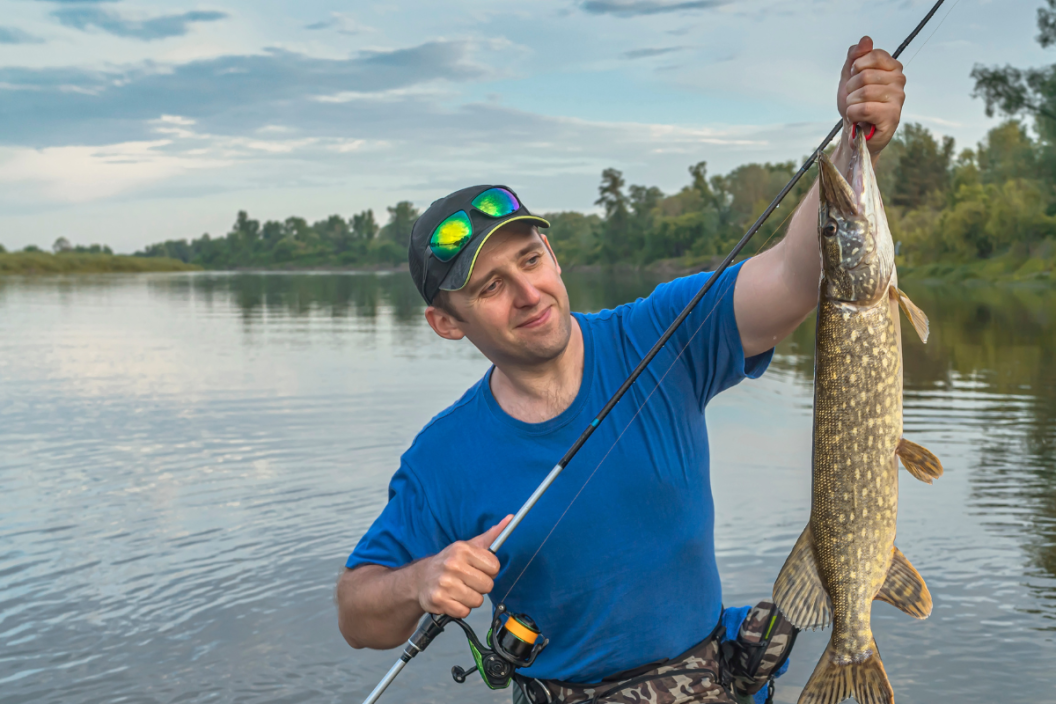If you're an avid angler, you know the importance of having the right gear. Choosing the right rod, reel, lines, and bait is crucial; that goes without saying. While everything I just listed is essential on the water, so is a piece of gear you don't often think about: your sunglasses.
Polarized sunglasses allow anglers to see through into the water much more clearly, which as a result, helps be able to spot more fish. Not only does it supply a better approach to fishing, but it also protects your eyes from harmful UV rays and glare coming off the water.
We know ultraviolet rays cause massive deterioration in our eyes, leading to miserable conditions such as cataracts, pterygia, and macular degeneration. UV rays cannot pass through your sunglasses' lenses, giving you an extra layer of safety. While the polarization of lenses won't add much protection against UV rays, it will allow for clearer vision. Some studies show that it is linked to less eye strain.
Polarized Fishing Sunglasses 101
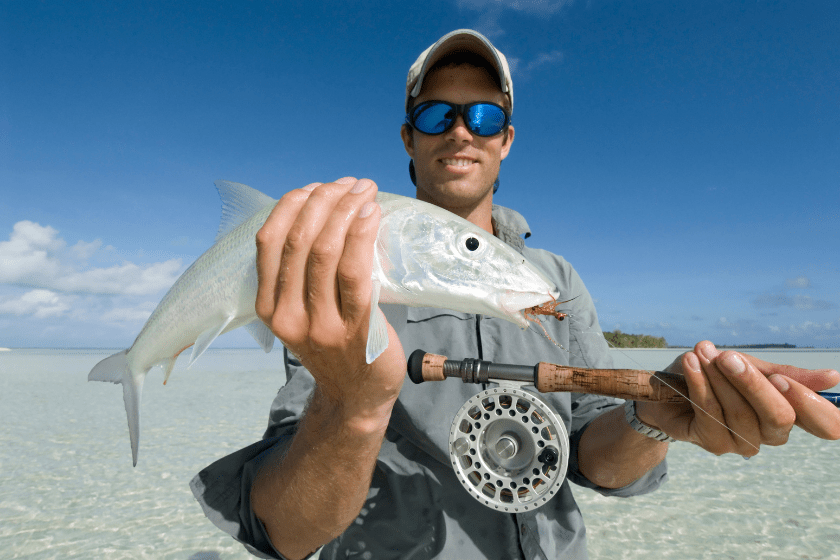
RainervonBrandis via Getty Images
Glass vs. Polycarbonate Sunglasses
If you're shopping for fishing sunglasses, you'll notice that most brands offer models in glass and polycarbonate (plastic). For a long time, glass has always reigned superior as far as quality goes. However, with new lens technology, both are very comparable.
Glass lenses are usually more expensive. This makes sense. Glass is a more expensive material than plastic. Glass is also highly scratch-resistant, which every angler knows is essential. We put our gear through some rough conditions.
I remember trying on a pair of glass and poly Costa's years ago and noting how much better the visibility was of the glass lenses over the poly. This past spring, I had difficulty spotting the difference between my glass and poly lenses.
With how great the clarity of poly lenses is nowadays, it's hard to figure out a negative for choosing poly over glass. They're less expensive, and they're challenging to crack. However, they're much more prone to scratching, so that's a tradeoff you'll have to consider.
A Lens Color for Every Scenario
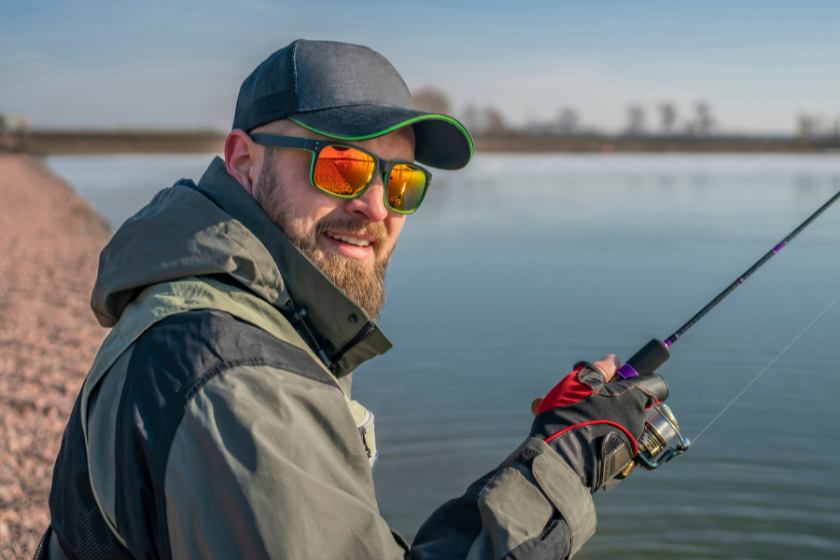
FedBul via Getty Images
If you thought lens color had more to do with style points, you're not alone. However, the color of your lenses can be critical to your performance on the water. This is not a one size fits all situation, though. Different color lenses will perform better depending on where you are fishing. Pick your lens color based on the amount of contrast you want to see.
Grey - A neutral lens such as grey will provide you with the most natural vision contrast. This is a great universal choice for anglers who want one lens type to perform well in multiple scenarios. Grey lenses won't supply any difference. However, they are quite possibly the best at blocking light, making them the perfect choice for these highly sunny days offshore.
Copper & Rose - Copper and Rose lenses are the best for spotting fish deep within the surface. They offer a very enhanced color contrast and a higher transmission of red light while blocking the harmful blue light that causes haze and blur. Copper and Rose lenses are my go-to when fly fishing for redfish in the saltwater flats.
Blue & Green Mirror - Having a mirror on the front of your lens allows for less light to pass through to your eyes. This helps avoid eye fatigue and strain. Blue and green mirrored lenses are fantastic offshore options that will dull some more neutral water colors and enhance the blues and the greens, allowing you to spot fish more efficiently.
Silver Mirror - Silver mirror lenses allow a lot of good light, making them excellent lenses for dusk, dawn, and those cloudy days on the water. They are also great at blocking harmful UV rays, making them an all-around choice for anglers.
Our Recommendations
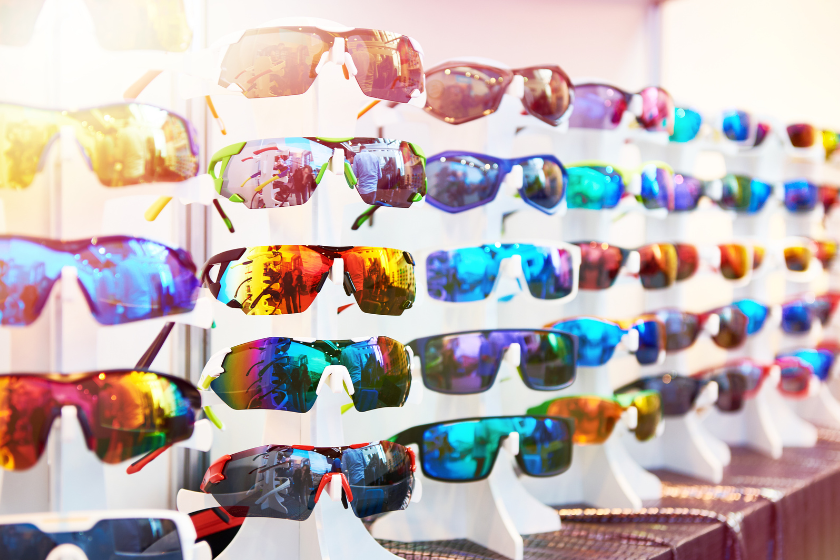
sergeyryzhov via Getty Images
Here are a few of my recommendations based on what type of fishing you are doing.
Maui Jim - Southern Cross
Lens Color - Green Mirror
Material - Glass
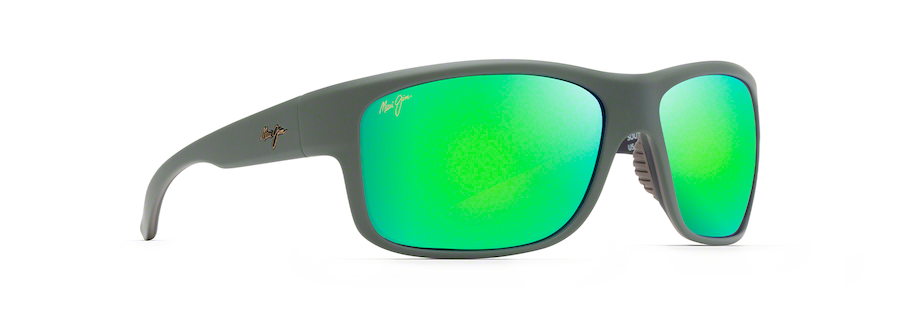
Maui Jim
The Southern Cross by Maui Jim is one of my favorite offshore sunglasses. Maui Jim's "SuperThin" glass supplies some of the best clarity out of any lens I have ever experienced. The wrap-around frame cuts down glare, and the green lenses make spotting offshore fish a breeze.
Smith - Guides Choice
Lens color - Copper Mirror
Material - Glass
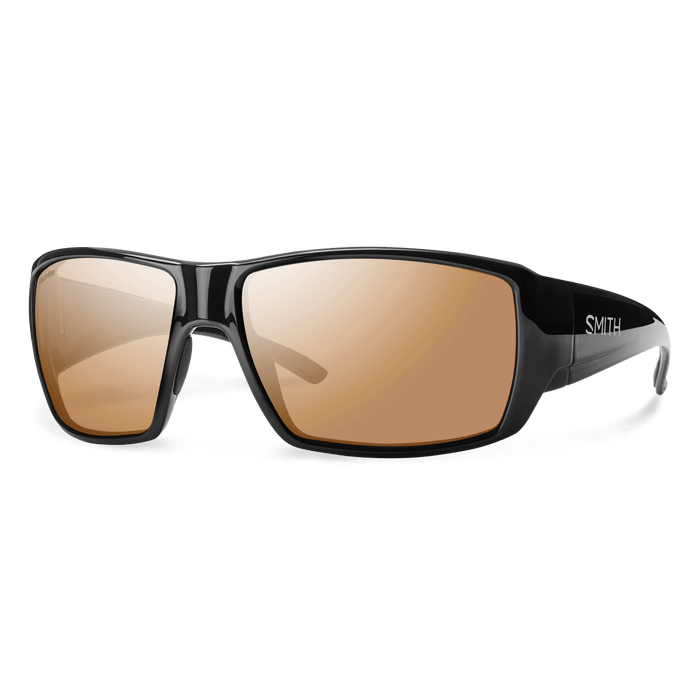
Smith Optics
Most fishing trips are spent spotting permit or tarpon along saltwater flats, and the Guides Choice by Smith is always my go-to. The copper lenses with Smiths ChromaPop+ allow you to see deep within the water while also blocking any harmful rays that might disrupt my trip.
Bajio - Swash
Lens Color - Silver Mirror
Material - Glass
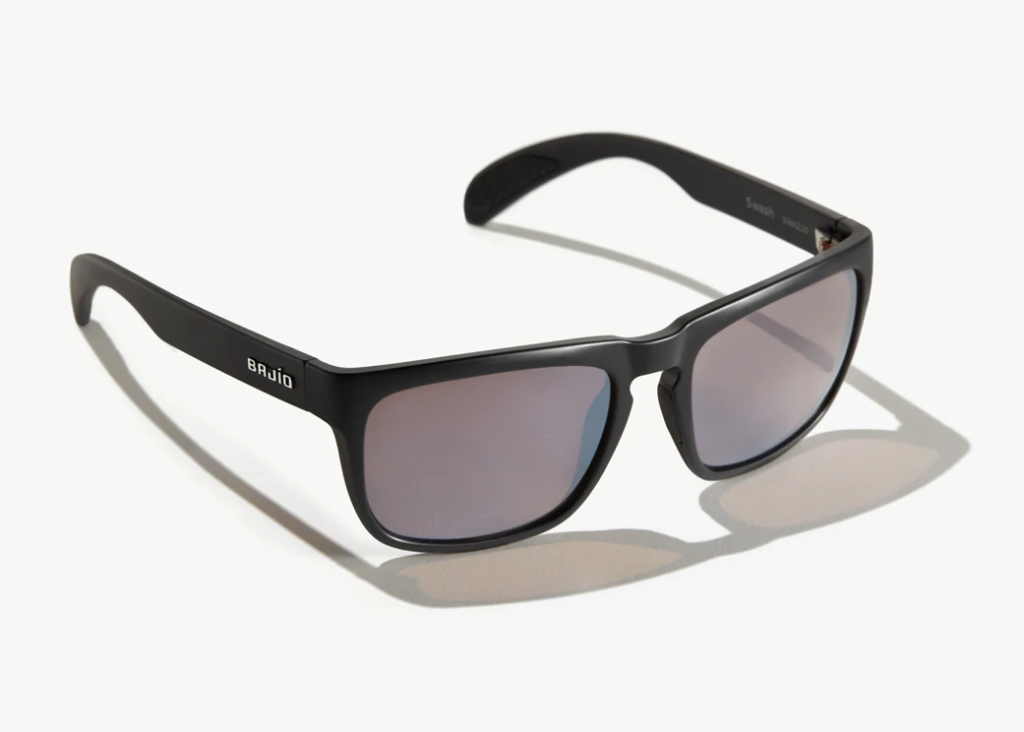
Bajio
Bajio is a newcomer to the sunglass world. After their big buyout, a group of people left Costa and wanted to start a company focusing on protecting the saltwater flats and making some great sunglasses. The Swash is my favorite frame and feels weightless while I am fishing. I love the silver mirror lens-its patented LAPIS technology supplies unmatched clarity. This is an excellent pair of sunglasses for the angler looking for a single pair for most situations.
People often understate the value of a good pair of polarized sunglasses for your fishing experience. Not only are they a necessary safety measure for the health of your eyes, but they also enhance fishing and allow you to spot more fish. You're one step closer to catching them if you can spot them.
There are several different options on the market today for fishing sunglasses. Whichever frame and lens you choose should depend on the type of fishing you are doing. Pick up a nice pair of polarized, blue light blocks shades. Trust me. You'll change your fishing experiences for the better.
